
Texas Medical Center
The Texas Medical Center is the largest medical complex in the world, spanning 50 million square feet and providing treatment to over 8 million patients per year. It is also home to the world’s largest children’s hospital and cancer hospital and continues to expand to this day. Our residents and faculty collaborate with many of the most well-established hospital systems in the TMC, both private and public, which paves the way for an extremely diverse training environment for our residents.
Below are each of our training sites, and a short description of what they offer our resident physicians:
Baylor St. Luke’s Medical Center
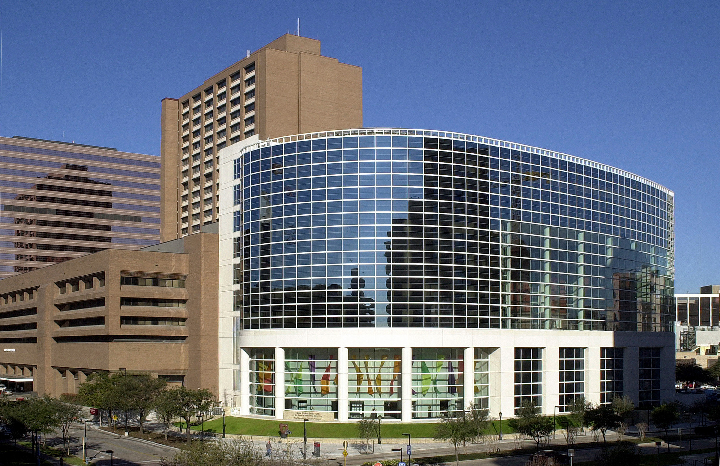
This is Baylor College of Medicine's flagship hospital, and is home to a unique hybrid of both academic faculty members and volunteer private practice clinical faculty which provides a rich diversity for our residents. BSLMC includes an immersive exposure into endoscopic, microscopic, open, laparoscopic, single-site, and robotic surgery. There is generous exposure to less common sub-specialties such as infertility, prosthetics, female reconstructive surgeries, transplant urology and single site laparoscopic donor nephrectomies. Thanks to an exceptionally large volume of laparoscopic and robotic cases, this site is the headquarters for the PGY-3 Flex Research Elective (FRE) rotation, where junior residents gain early exposure and graduated autonomy in minimally invasive surgery. There are opportunities for both one-to-one faculty-to-resident mentorship as well as resident-to-resident operative teaching. Learn more about Baylor St. Luke’s Medical Center.
Ben Taub Hospital
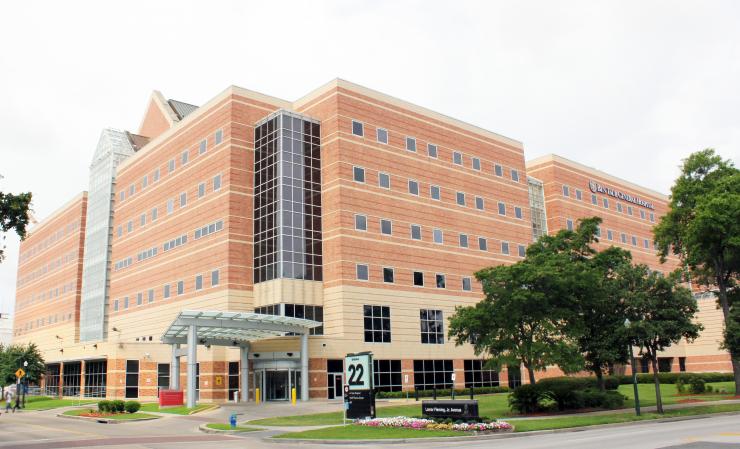
Ben Taub Hospital is one of the busiest Level 1 trauma centers in the country and the primary medical facility for the underserved populations of Houston. High clinical and operative autonomy allows residents to gain confidence in their decision making and surgical skills. The pathology at BTH includes rare and complex entities that one won't see in other settings due to the patient population. There is a large volume of major open surgical procedures including complex urological oncology as well as trauma and reconstruction, allowing residents to feel extremely comfortable with any type of open urologic surgery. This is our only site without a surgical robot, allowing residents to develop their laparoscopic skills in complex procedures such as partial nephrectomy and pyeloplasty. There are ample opportunities for more senior and chief residents to mentor and teach more junior residents. The service is heavily "resident-run" with guidance from several faculty members who are approachable, energetic, and who are educational champions. Learn more about Ben Taub Hospital.
Michael E. DeBakey VA Medical Center
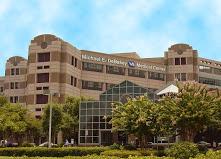
The second largest government building in the United States (second only to the Pentagon), the MEDVAMC operates one of the largest VA residency program in the country. It serves as the health care provider for more than 113,000 Veterans and is a referral center for urologic surgery for Veterans from around the country. Here, there is an wide variety of state-of-the art operative technology (HIFU for prostate cancer, multiple DaVinci XI surgical systems with integrated beds, MRI fusion biopsy systems, Rezūm Water Vapor Therapy, 3D laparoscopes, and a 120 watt laser generator to name just a few example). This is another site with high patient volumes where an emphasis is placed on clinical and operative autonomy. Residents enjoy remarkable continuity of care as they are able to follow patients from pre-operative counseling through surgery and their post-operative visits. Under the guidance of dedicated faculty to this site, most of whom are fellowship-trained, the residents are able to deliver the highest quality of care with exceptional autonomy and ownership. It is also a fertile landscape for research opportunities. Learn more about the Michael E. DeBakey VA Medical Center.
Texas Children’s Hospital
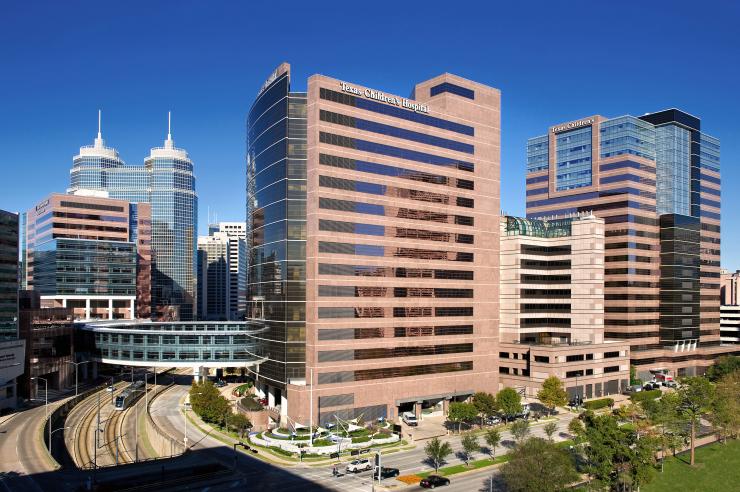
Texas Children’s Hospital is consistently ranked among the top children’s hospitals in the world, providing unprecedented excellence in pediatric care and attracts unique cases from across the country. As a result, our residents have an incredible exposure to pediatric urologic surgery. On this rotation, a PGY-4 has their first exposure to being a service “chief.” The high volume and wide breadth of cases allows the chief to be involved in complex robotic and reconstructive cases while the PGY-2 gains expertise with common pediatric urology cases. The renowned pediatric faculty run their own curriculum of robust educational conferences for the on-service residents as well. Learn more about the Texas Children’s Hospital.
Baylor St. Luke’s McNair Campus
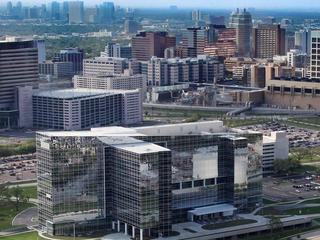
The McNair Campus is home to the Scott Department of Urology academic offices & clinics. Residents have the opportunity to accompany our faculty during his/her clinic visits and assist in patient counseling. While the VA and Ben Taub have resident-run clinics, the McNair campus offers residents the ability to learn from some of the field’s leading experts to apply to their own clinical practice. It is also the future home to what will be a brand-new hospital and NCI-designated Cancer Center. Learn more about the Baylor St. Luke’s McNair Campus.








